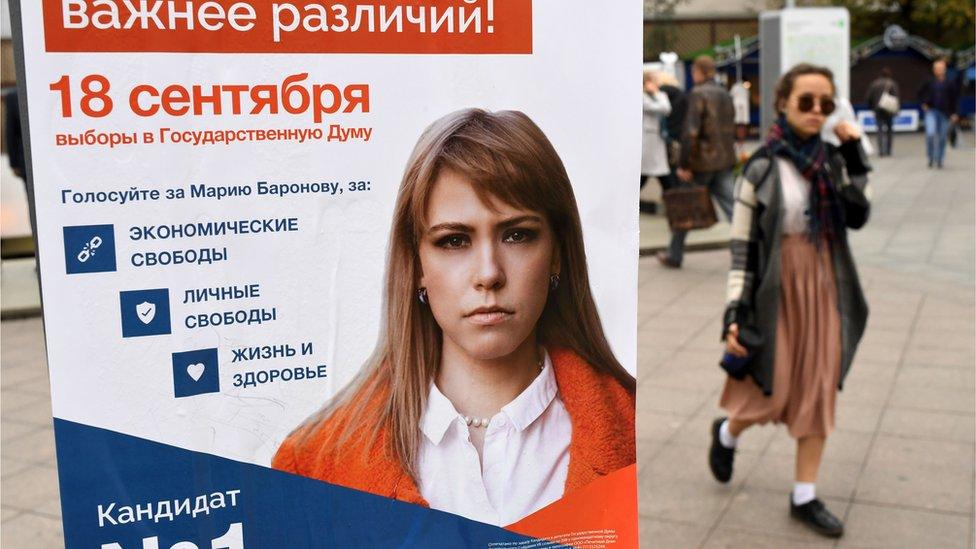Russian elections: What we learned
- Published
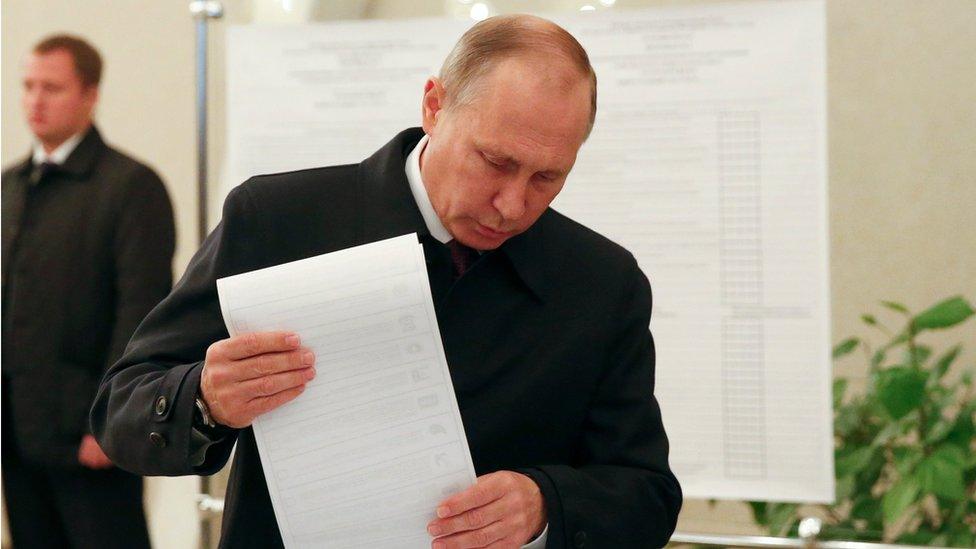
President Vladimir Putin described it as a vote for "stability"
This result was a resounding victory for United Russia. The party founded by Vladimir Putin now controls over three quarters of the seats in parliament, giving it the power to change any law or the constitution.
How it happened
President Putin himself described it as a vote for "stability" in difficult economic times. But it was as much a vote for Mr Putin himself, as the party campaigned heavily on its ties to the president. He even took a last minute, televised fishing trip with party leader Dmitry Medvedev - in case anyone missed the point.
As the "party of power", United Russia is a constant presence on state television - and not just in the run up to elections. That has a huge influence on voters.
But a change to the electoral system has also been key. Single-mandate constituencies were reintroduced for half of the seats in parliament and United Russia had a major "systemic" advantage there.
A diminished turnout
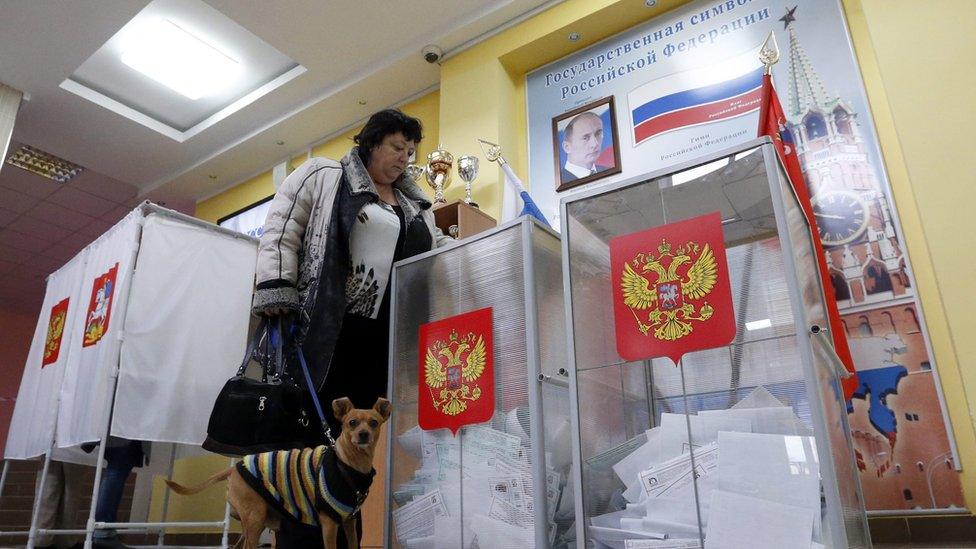
Less than half of Russians turned up to vote
Still, the win was secured with a record low turnout. Just 47,8% voters made it to the polls - the lowest figure since the collapse of the Soviet Union. Even a massive 94.9% turnout in Chechnya had little impact.
One official blamed the damp weather, but others argued that many Russians had lost faith in the system. They don't believe their vote will count.
"People understand that Putin will never allow real opposition to appear in power, so they close themselves in their kitchens," former Prime Minister Mikhail Kasyanov told the BBC.
In big cities like Moscow and St Petersburg interest was lower still - a disaster for the liberal opposition, which relies on such places to pick up votes.
It seems that many people who took to the streets in anger at evidence of fraud in 2011 protested this time by opting out of the election process altogether.
Not exactly free and fair
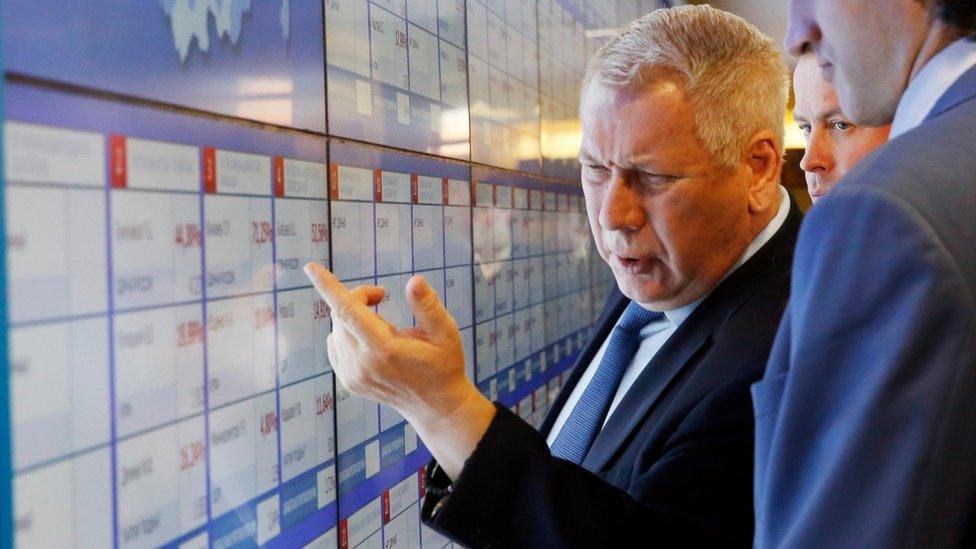
The Russian Central Electoral Commission watches live voting results
So was it a fair fight? A new - broadly respected - boss was appointed to the official electoral commission (CEC) and she says the election was legitimate.
The CEC says it will examine specific allegations of ballot stuffing, multiple voting and other violations. Video proof of such practices has been flooding social media
But the OSCE, which had 500 monitors here, points out that "fairness" has deeper roots.
"We couldn't find real political pluralism," mission head, Ilkka Kanerva, told the BBC - despite the presence of 14 parties on ballot papers.
"The ruling party is so strong, dominating the media, and its role is so central, small parties don't have much space to act," he said.
Opposition flop
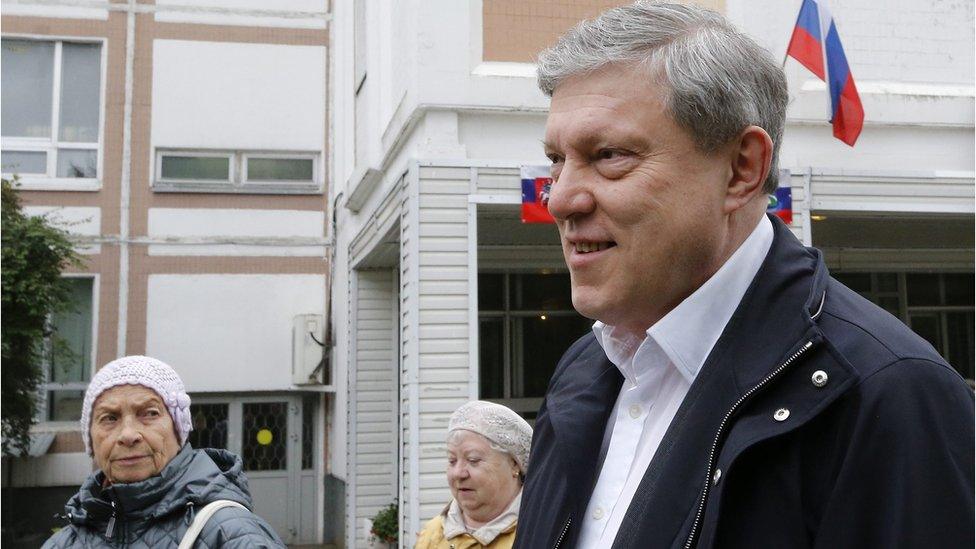
Grigory Yavlinsky, leader of the Russian Liberal party Yabloko
So once again, Russia's liberal opposition has been left out in the cold. None made it close to the 5% threshold to enter parliament. The oldest and best known, Yabloko, even dropped support.
Internal rivalries and divisions are part of the problem. But with a state-media smear campaign, obstacles to campaigning and harassment, the opposition was always battling against the odds.
This time, the apathy of more than half of the Russian electorate - who simply stayed away from the polls - dealt a killer blow.
- Published19 September 2016
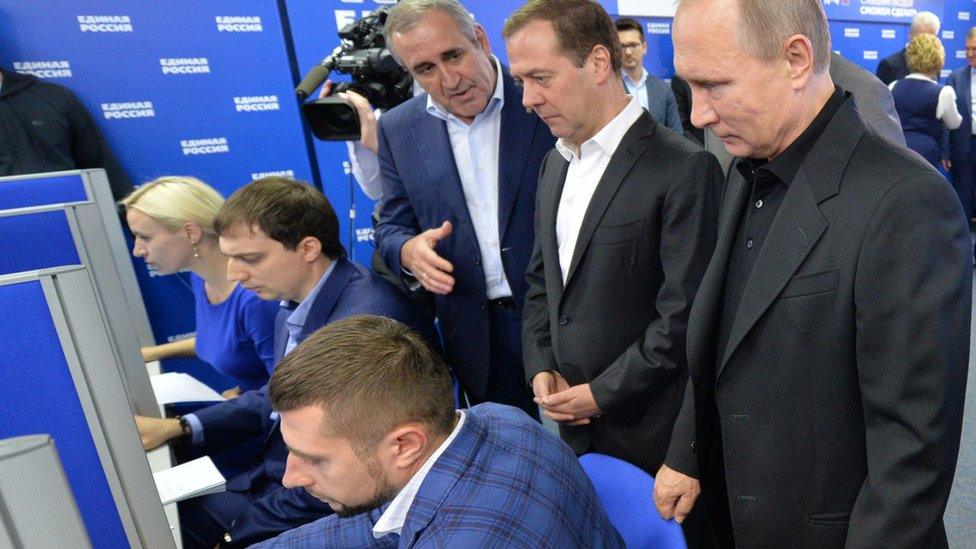
- Published18 September 2016
